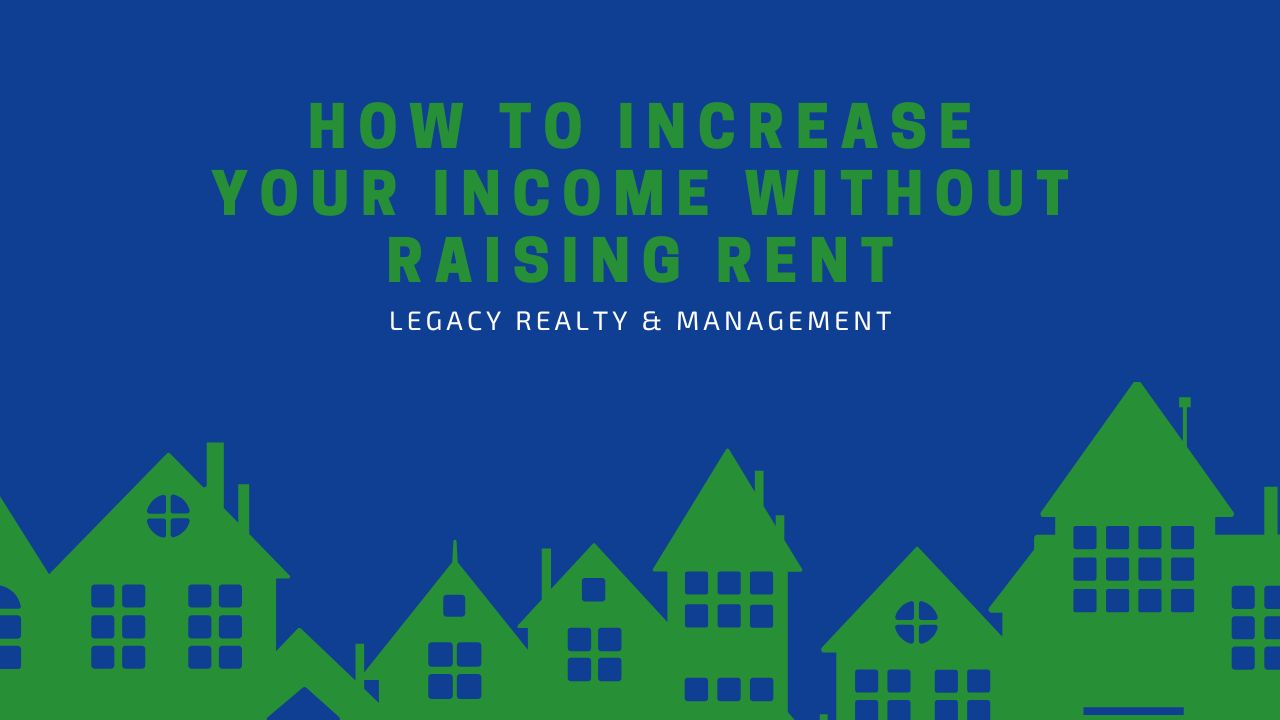
Being a landlord can be one of the most effective ways to earn passive monthly income. However, to achieve long-term success, you must treat your rental property like a business. This means being proactive about responding to tenant issues, drafting a
solid lease agreement
, ensuring legal compliance, and maintaining the property.
For most landlords, the ultimate goal is to maximize their return on investment (ROI). While increasing the rent amount may seem like the easiest way to boost income, it’s not always feasible. In fact, raising rent too frequently or by too much can alienate tenants and hurt your investment in the long run.
Here are some practical and effective ideas to help you grow your earnings while keeping tenants happy.
Charge Late Rent Fees
If you’re not charging late fees for overdue rent, you’re missing out on a potential source of income. Even responsible tenants might occasionally pay rent late due to unexpected circumstances such as medical emergencies, job losses, or unforeseen expenses.
By implementing a late fee policy, you can encourage on-time payments while generating additional revenue. However, it’s essential to clearly outline your policy in the lease agreement to avoid disputes or confusion. Here are key details to include:

- Late fee amount: Specify whether the fee will be a flat amount or a percentage of the monthly rent. Be sure to comply with your local landlord-tenant laws , as some jurisdictions regulate the amount landlords can charge.
- Grace period: Define how many days (if any) tenants have after the due date to pay without incurring a fee. This could be a few days after the 1st of the month or after any specified grace days.
- Due date: Clearly state the date when rent is due each month.
Additionally, inform tenants about acceptable payment methods and provide clear notice requirements for late payments. This transparency helps foster a good landlord-tenant relationship while ensuring your policies are enforceable.
Introduce Pet Fees
As a landlord, you have the right to decide whether or not to allow pets in your rental property. However, outright rejecting pets may limit your tenant pool and reduce your earning potential.
The United States is a nation of pet lovers, with over 65% of households owning at least one pet. Instead of banning pets, consider implementing pet policies that include fees or deposits to offset potential wear and tear caused by animals.
You can charge:
- Pet rent: A monthly fee added to the tenant’s regular rent.
- Pet deposit: A one-time refundable deposit collected at the start of the lease. Keep in mind that any unused portion of the deposit must be returned when the lease ends, minus the cost of damages beyond normal wear and tear.

By allowing pets and charging appropriate fees, you can attract a broader range of tenants while generating additional income.
Build Relationships with Reliable Vendors and Contractors
Maintenance and repairs are unavoidable aspects of being a landlord. Whether it’s a plumbing issue, electrical problem, or landscaping task, dealing with these responsibilities can be costly—especially if you hire the wrong contractors .
Building strong relationships with reliable local vendors and contractors can help you save money in the long term.
Trusted professionals may offer discounts for repeat business, ensure high-quality work, and respond promptly to repair requests. These benefits not only reduce your expenses but also improve tenant satisfaction, which can lead to more long-term lease agreements and lower turnover rates.
Offer Additional Storage Space
Extra storage is a valuable commodity, particularly in urban areas where space is limited. If your property has attics, basements, sheds, or other unused areas, consider renting them out to tenants for an additional fee.
Tenants often appreciate the convenience of having extra storage space on-site, and you can boost your income without increasing rent. Make sure to include the terms, such as cost, size limits, and access conditions, in the lease agreement to avoid misunderstandings.
Rent Out Parking Spaces
Parking is another high-demand amenity, especially in cities or neighborhoods where space is scarce. If your property has extra parking spots, you can charge tenants (or even non-tenants) a monthly fee to use them.

Be sure to clearly outline the parking terms in the lease agreement, including the cost, assigned spaces, and any usage rules. This approach can be a win-win, providing tenants with convenient parking while generating additional revenue for you.
Hire a Professional Property Manager
Managing a rental property can be time-consuming and stressful, especially if you’re new to landlording, live out of state, or juggle other responsibilities like a full-time job. Hiring a property manager can be a game-changer in these situations.
A skilled property manager handles all aspects of property management on your behalf, including:
- Tenant screening: Ensuring you rent to reliable tenants.
- Maintenance and repairs: Coordinating with vendors to address issues promptly.
- Legal compliance: Keeping your property and lease agreements up to code with local laws.
- Rent collection: Ensuring timely rent payments and managing late fees.
A knowledgeable property manager can provide expert advice on strategies to increase your income and optimize your ROI.
Conclusion
Being a successful landlord means finding creative ways to maximize your income without burdening your tenants. By implementing strategies like charging late fees, allowing pets with associated fees, offering additional storage and parking, you can boost your earnings while maintaining tenant satisfaction.
Consider Hiring a reliable property management company like Legacy Realty & Management , where we specialize in professional property management services in the Dallas Metro area. Our team is dedicated to helping landlords like you maximize their ROI with expert guidance and support. Contact us today.
